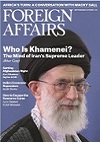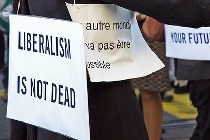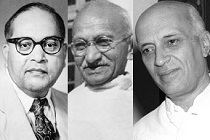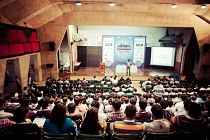Charting a new route to Bangladesh
Pankaj Saran, India’s High Commissioner to Bangladesh, talks to Gateway House about the current relationship between the two countries and the prominent issues that need to be addressed for a durable partnership.
Pankaj Saran, India’s High Commissioner to Bangladesh, talks to Gateway House about the current relationship between the two countries and the prominent issues that need to be addressed for a durable partnership.
 Courtesy: Foreign Affairs
Courtesy: Foreign Affairs
In Indian politics, caste and religion still matter, but in many states, economic competence now matters more. Things look bad in New Delhi, but the capital is not the whole of India.
 Courtesy: Harry S. Truman Library and Museum/ Wikimedia Commons
Courtesy: Harry S. Truman Library and Museum/ Wikimedia Commons
This daily column includes Gateway House’s Badi Soch – big thought – of the day’s foreign policy events. This Badi Soch deliberates on the timing of the CIA’s admission of involvement in overthrowing Iran’s Prime Minister Mohammed Mossadegh in 1953 and the implications of this disclosure
 Courtesy: Ronnie Hall/Flickr
Courtesy: Ronnie Hall/Flickr
Liberalism is a politics of hope, mutuality, compromise and reason. If that has been replaced by a politics of fear, egotism, polarisation and unreason, it is India’s elites that are responsible. How can liberalism be made an object of mass politics in India?
 Courtesy: UK Ministry of Defence/Flickr
Courtesy: UK Ministry of Defence/Flickr
The war on terror and the global financial crisis have tilted the balance of authority on the side of the state, which the liberating forces of cyber space have only partially counteracted. Can the forces of liberalisation prevail over the forces of incipient oppression?
 Courtesy: Wikimedia Commons
Courtesy: Wikimedia Commons
Over the past 30 years, Indian liberals have shed their values of tolerance, reason and dialogue. The rise of fundamentalism, strident socio-political discourse, and post-modernist individualism also indicate the decline of the liberal ethos. This is a threat to India’s vibrant philosophical liberal tradition
 Courtesy: Dipayan Bhattacharjee/Flickr
Courtesy: Dipayan Bhattacharjee/Flickr
The reforms of the early 1990s did not bring economic freedom to a majority of the population. That explains a large proportion of the economic and social ills that affect India today. Why is economic life in India of the ‘Taliban type’? Why is illiberal thought still our guiding principle?
 Courtesy: India Kangaroo/Flickr
Courtesy: India Kangaroo/Flickr
India needs a new liberal party, which trusts markets rather than officials for economic outcomes, and focuses on reform of the institutions of governance. This new party must be accompanied by a recovery of the moral authority of our Constitution, and by individual engagement with everyday politics
 Courtesy: Kiruba Shankar/Flickr
Courtesy: Kiruba Shankar/Flickr
Education is the most in-demand commodity amongst both the rich and the poor in India. Yet, the state is unable to ride this wave to create a more liberal society. If education is the gateway to taking India’s liberal agenda forward, then educational institutions must be free to pursue their own paths
 Courtesy: Sebastian Baryli/ Flickr
Courtesy: Sebastian Baryli/ Flickr
Inclusive growth means inclusive reforms and equity in economic freedom, which empowers the formal sector as well as the huge informal sector in India. In the social sector, the government must fund beneficiaries, while in the political domain the ‘ruled’ and the ‘rulers’ must be equal